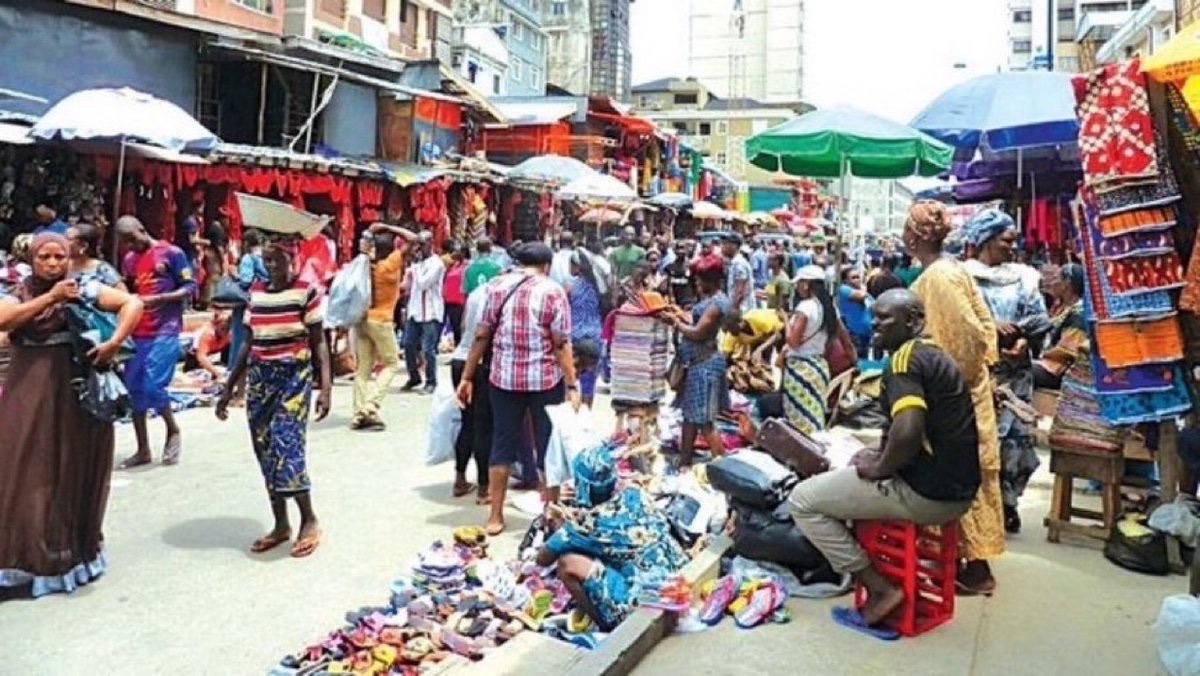The National Bureau of Statistics (NBS) has reported that Nigeria’s headline inflation rate dropped to 22.97% in May 2025, a decline of 0.74 percentage points from April 2025’s rate of 23.71%. This marks the first significant slowdown in inflation in several months, signaling potential stabilization in the economy. The NBS attributes this decline to the recent rebasing of the Consumer Price Index (CPI) to 2024, which reflects updated household consumption patterns and provides a more accurate measure of price changes.
Key contributors to the reduction in the headline inflation rate include moderated price increases in essential sectors. Notably, food and non-alcoholic beverages, which constitute a significant portion of the CPI basket, recorded a year-on-year inflation rate of 9.20%, a substantial decrease from prior months. Other sectors, such as restaurants and accommodation services (2.97%) and transport (2.45%), also saw slower price growth, easing the overall inflationary pressure on Nigerian households.
On a month-on-month basis, the headline inflation rate for May 2025 was 1.53%, down by 0.33 percentage points from April’s 1.86%. This indicates a slower pace of price increases within the month, offering some relief to consumers. The NBS highlighted that the rebasing exercise, which adjusts the CPI basket to reflect current consumption trends, has improved the accuracy of these measurements, ensuring they align with Nigeria’s evolving economic landscape.
Food inflation, a critical concern for many Nigerians, stood at 21.14% year-on-year in May 2025, driven by price increases in staples such as yam, bread, cereals, and cooking oil. However, this was a moderation compared to previous months, reflecting improved supply chains and seasonal harvests. Month-on-month, food inflation was 2.19%, slightly higher than the headline rate, indicating persistent pressures in specific food categories despite the overall decline.
Core inflation, which excludes volatile items like agricultural produce and energy, was recorded at 22.28% year-on-year, a slight decrease from April’s 22.85%. On a month-on-month basis, core inflation was 1.10%, reflecting stable price movements in non-volatile sectors such as housing, clothing, and education. The NBS noted that the exclusion of energy prices, which have been subject to fluctuations due to global oil market dynamics and domestic policy changes, contributed to the steadier core inflation trend.
State-level data revealed significant regional disparities in inflation rates. Borno State recorded the highest year-on-year inflation at 38.93%, followed by Niger (34.97%) and Plateau (32.35%), largely due to insecurity affecting agricultural production and supply chains in these areas. In contrast, Katsina (16.25%), Adamawa (18.20%), and Delta (18.41%) reported the lowest inflation rates, benefiting from relatively stable local economies and better access to goods.
Urban and rural inflation trends also diverged. Urban inflation was 24.12% year-on-year, down from 25.03% in April, while rural inflation stood at 21.89%, a decrease from 22.47%. Month-on-month, urban inflation was 1.68%, and rural inflation was 1.39%, reflecting slightly faster price growth in urban areas due to higher demand and logistical costs.
The NBS emphasized that the CPI rebasing to 2024 involved updating the basket of goods and services to better capture modern consumption patterns, such as increased spending on telecommunications and processed foods. This exercise, conducted every five to seven years, ensures that inflation measurements remain relevant. The updated CPI basket now includes 12.48% more items, with a particular focus on urban and rural expenditure differences.
Economists have cautiously welcomed the decline in inflation, noting that while it indicates progress, structural challenges such as insecurity, foreign exchange volatility, and energy costs continue to pose risks. The Central Bank of Nigeria’s monetary policy tightening, including interest rate hikes, has also played a role in curbing demand-driven inflation. However, analysts stress that sustained efforts to address supply-side constraints, particularly in agriculture and transportation, are crucial for long-term price stability.
Looking ahead, the NBS projects that inflation may continue to moderate if current trends in food supply and exchange rate stability persist. However, external factors such as global commodity price fluctuations and domestic policy decisions, including potential fuel subsidy adjustments, could influence future inflation trajectories. The bureau plans to release June 2025 inflation data in mid-July, providing further insights into Nigeria’s economic performance.




